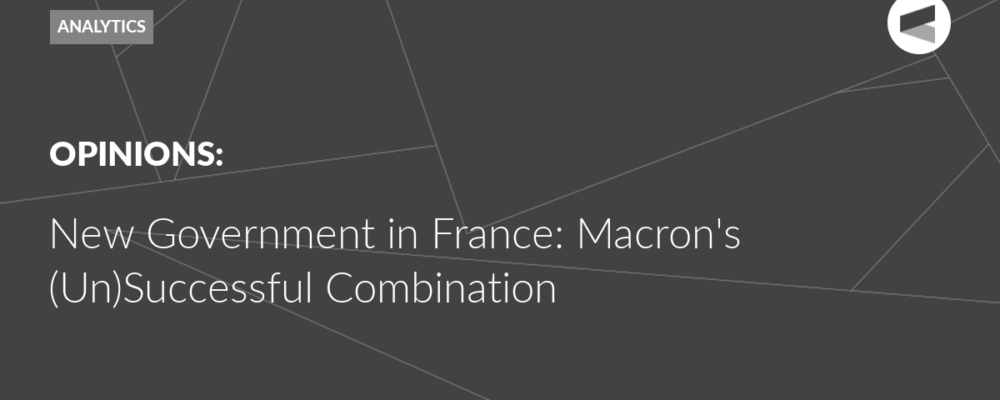On March 25, Israel’s legislature, the Knesset, approved the country’s budget for the current year, preventing the collapse of Benjamin Netanyahu’s government. At the same time, the ratio of military to civilian spending, the attraction of funds from the Israeli Citizens Fund and a number of accompanying factors have turned the document not only into the main financial plan, but also a kind of political plan for the future, Elizaveta Yakimova writes.
Israel’s budget for 2025 is an unprecedented 756 billion shekels (206.5 billion US dollars), of which 136 billion is intended to service the national debt. Of the remaining 620 billion shekels in spending, defence appropriations account for almost 110 billion (30 billion dollars). This can be interpreted as a hint regarding the continuation of the military campaign in the region. However, this judgment seems only partially fair based on a number of factors.
First, shortly before the final parliamentary hearings, the Ministry of Defence assessed the financial component of the resumption of hostilities, stating that the actual costs could exceed those budgeted by up to several tens of billions of shekels. In this case, the scenario of events as well as the number and duration of the call-up of reservists will be of decisive importance. It follows from this that the government did not include a new large-scale mobilisation in the economic plan for the year in advance, probably expecting to get by with the forces of the regular army.
Second, the increase in defence spending fits into the general logic of the relevant ministry, according to which the corresponding allocations must be consistently increased over the next four years. The underlying reason for the emergence of such a proposal can be considered the increased likelihood of returning, after the end of the war with Hamas, to multi-year military planning with an optimisation of funding, which was carried out in the second half of the 2010s but interrupted by the Covid-19 pandemic and a series of early elections. In the new reality, the Bank of Israel is lobbying for a revaluation of military spending, and therefore it is possible that the Ministry of Defence, taking advantage of regional tensions, is trying to increase the starting amount, from which cuts will be made in the future.
An interesting line item in Israel’s 2025 budget is support for public diplomacy in the amount of 545 million shekels ($149 million), which is planned to be spent on interaction with foreign media, social networks and foreign policy campaigns. Two aspects are noteworthy here. First, social networks previously played a key role not in the context of improving the state’s image, but in monitoring hostile sentiments and signs of preparation for terrorist attacks. Second, foreign policy campaigns have not been a priority for the Ministry of Foreign Affairs over the past few years, including due to limited funding. The last significant one was carried out in the 2010s and concerned defending the rights of Jewish refugees from Arab countries, which was considered a kind of counterargument in the dispute with the Palestinians and UNRWA over the right of return of Palestinian refugees.
Allocations for civil needs are considered sufficient for the functioning of the socio-economic system. Thus, the budget of the Ministry of Education is about 90 billion shekels, and that for the Ministry of Health is just under 60 billion shekels. However, such a distribution of expenses does not contribute to the country’s recovery. In particular, communities affected by the Hamas attack and the conflict with Hezbollah did not receive all the necessary assistance for reconstruction. For example, the amount required by Kibbutz Nir Oz, 38 of whose residents were killed and 77 kidnapped by Palestinian militants on October 7, 2023, differs from the standard government support package for such areas by 200 million shekels. Local residents have been encouraged to seek these funds from philanthropists rather than from the treasury, although in mid-March the Committee for the Supervision of the Israeli Citizens Fund, which accumulates revenues from gas and oil production, approved the allocation of 189 million shekels to the budget for the current year, intended, among other things, for the restoration of damaged settlements. However, this money should only be used for the construction of public buildings.
At the same time, several aspects of budget planning touched upon the sensitive issue of sovereignty over Jerusalem and the West Bank. First, the government refused to abolish some departments for the sake of economic efficiency, including the Ministry of Jerusalem and Heritage. On the other hand, the list of coalition fund expenses mentions archaeological excavations in Judea and Samaria.
The peculiar unspoken priority of Judea and Samaria over the Negev, despite the Israel Citizens Fund’s inclusion of the latter in its list of areas of support, is important for a number of reasons related to the Middle East conflict. In the short term, this hints at the intention of the government coalition to maintain the status quo in the territorial issue. In the future, events may develop according to one of several scenarios. As has already happened with the Temple Mount, archaeological excavations in the disputed area are capable of stimulating mass unrest, up to and including a new general Palestinian uprising – the third intifada. The approach to the Negev either refers to one of the alternatives to a settlement based on the principle of “two states for two peoples,” according to which Egypt could receive part of this region in exchange for the resettlement of Palestinians, or indicates plans for a serious revision of the development of the Southern District of Israel.
Returning to the Israel Citizens Fund, consent for the use of its reserves indicates positive expectations from the prospects for gas and oil production, as well as investing already accumulated funds abroad. The first may be associated with plans for a new stage of exploration of fields in the Eastern Mediterranean by a consortium of the Israeli company NewMed Energy, British BP and Azerbaijan’s SOCAR, which results in an interest in stabilising the northern front. In the second case, the government is presumably counting on profitable investments in the United States, supported by President Donald Trump’s special attitude towards Israel.
Among the problems, the budget deficit stands out, the target indicator of which has been increased to 4.9% of GDP. It is proposed that the government partially compensate for the growing costs through taxes, which should bring in 20 billion shekels to the treasury. The downside of this measure would be a de facto refusal to resolve the long-standing task of reducing the cost of living in the country. However, it will apparently only be updated before the next elections, since the approval of the main financial document has made it possible to avoid the early dissolution of the Knesset.
A certain stabilisation of Benjamin Netanyahu’s coalition is ensured not only by the opposition’s failure in the budget vote, but also by the priorities it demonstrated. Political opponents’ criticism of the Prime Minister has been limited to the misuse of funds for the needs of small government parties, while his own programmes for economic or political reforms were not put forward. At the same time, in 2022, amid disappointment with the early termination of the powers of the alternative government of Naftali Bennett and Yair Lapid, then-Defence Minister Benny Gantz proposed a reform that includes abandoning the dependence of the dissolution of parliament and the adoption of the budget in order to avoid a repeat of the political impasse. In the current reality, the opposition camp has abandoned such an idea, apparently hoping to use the Basic Law on the Knesset for its own purposes.
Thus, the budget for 2025 not only shows Israel’s priorities, but also demonstrates the urgent need for significant changes in various areas. However, the temporary elimination of the threat of early resignation, combined with the incompleteness of the war against Hamas and the general tension in the region, have allowed the government to push these tasks into the background, with their inevitable actualisation before the elections. The opposition’s reaction to current events hints that if there are no serious changes in its strategy and composition, then the parties mentioned will again come out to the next vote, not with a program offering a solution to the problems of the population, but with the slogan “just not Netanyahu.”
The Valdai Discussion Club was established in 2004. It is named after Lake Valdai, which is located close to Veliky Novgorod, where the Club’s first meeting took place.
Please visit the firm link to site






